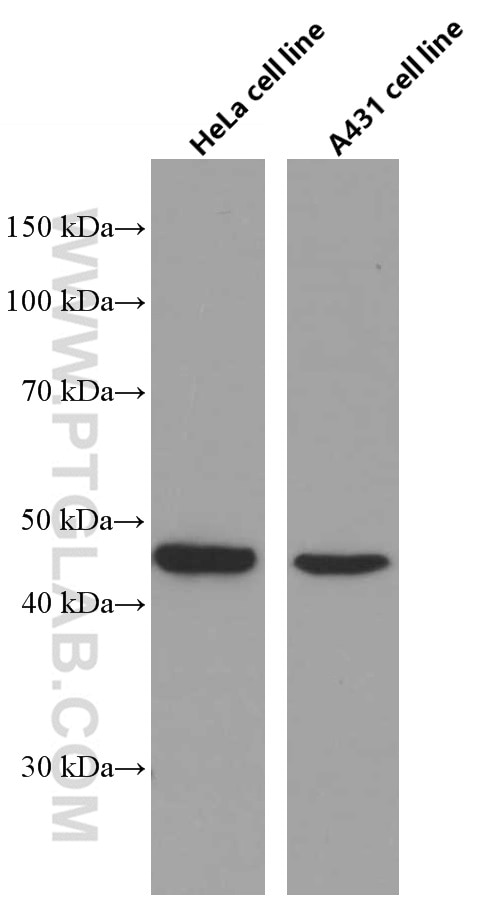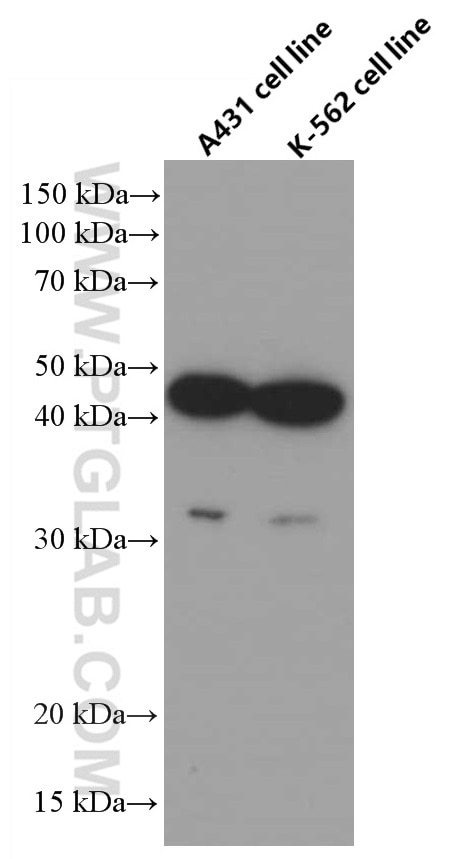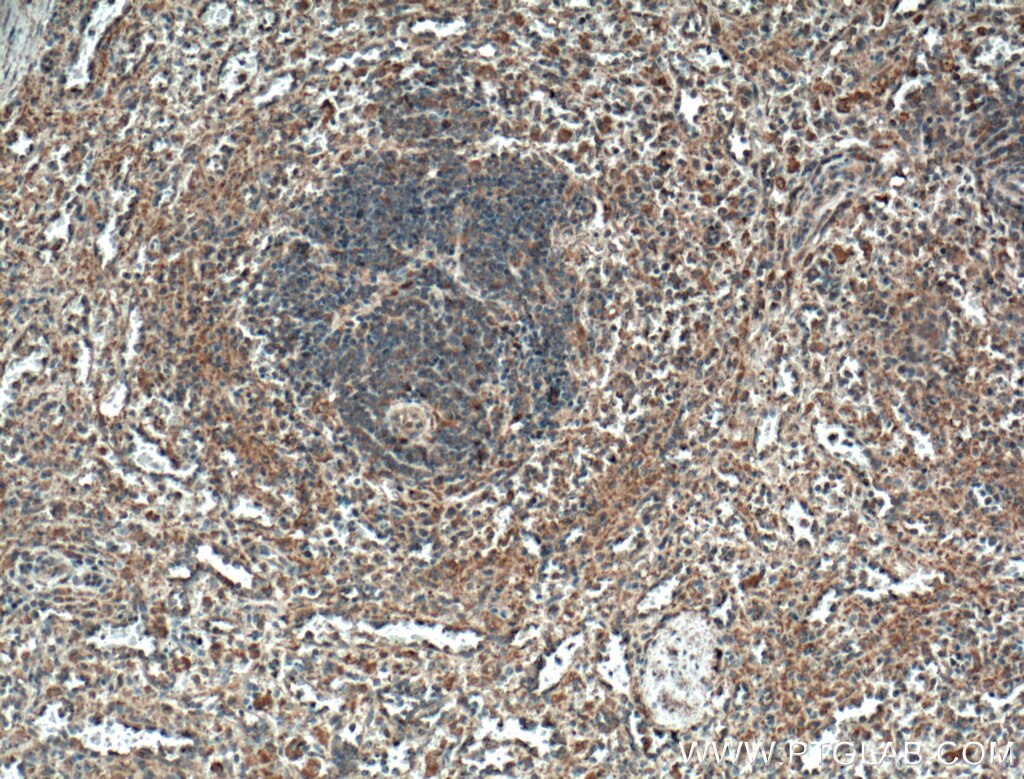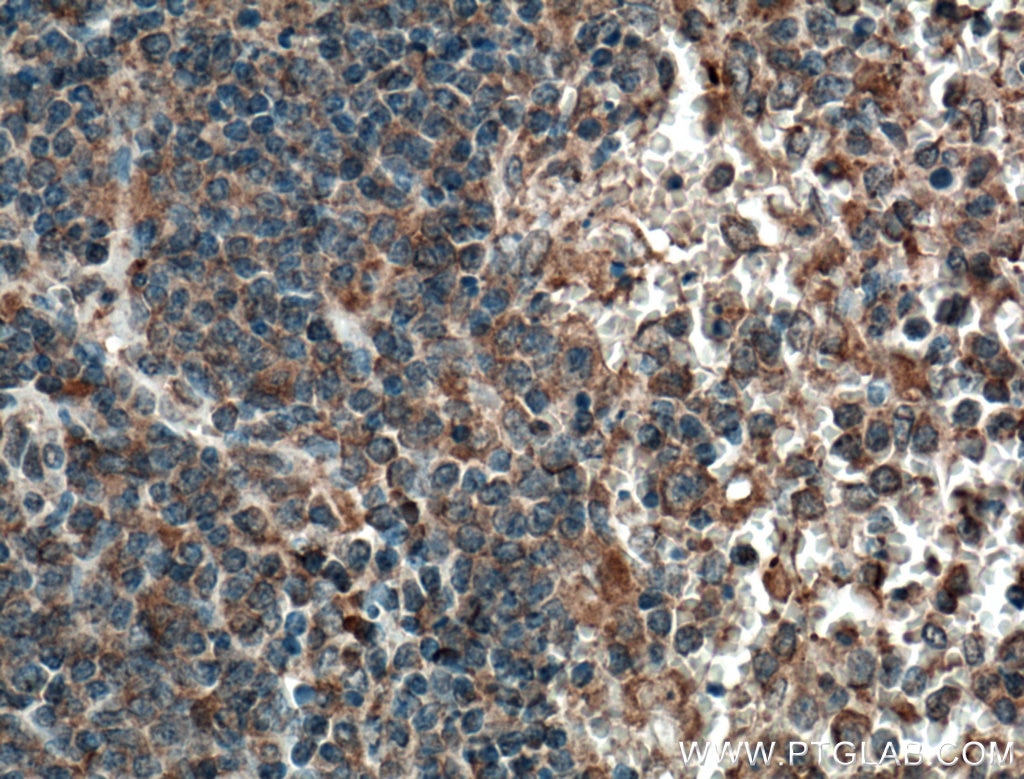Validation Data Gallery
Tested Applications
Recommended dilution
| Application | Dilution |
|---|---|
| It is recommended that this reagent should be titrated in each testing system to obtain optimal results. | |
Product Information
66611-1-PBS targets CCRL2 in WB, IHC, Indirect ELISA applications and shows reactivity with Human samples.
| Tested Reactivity | Human |
| Host / Isotype | Mouse / IgG1 |
| Class | Monoclonal |
| Type | Antibody |
| Immunogen |
CatNo: Ag4045 Product name: Recombinant human CCRL2 protein Source: e coli.-derived, PGEX-4T Tag: GST Domain: 250-344 aa of BC025717 Sequence: MWAPYNIAFFLSTFKEHFSLSDCKSSYNLDKSVHITKLIATTHCCINPLLYAFLDGTFSKYLCRCFHLRSNTPLQPRGQSAQGTSREEPDHSTEV 相同性解析による交差性が予測される生物種 |
| Full Name | chemokine (C-C motif) receptor-like 2 |
| Calculated molecular weight | 344 aa, 40 kDa |
| Observed molecular weight | 47 kDa |
| GenBank accession number | BC025717 |
| Gene Symbol | CCRL2 |
| Gene ID (NCBI) | 9034 |
| RRID | AB_2881971 |
| Conjugate | Unconjugated |
| Form | |
| Form | Liquid |
| Purification Method | Protein G purification |
| UNIPROT ID | O00421 |
| Storage Buffer | PBS only{{ptg:BufferTemp}}7.3 |
| Storage Conditions | Store at -80°C. |
Background Information
Chemokine CC motif receptor-like 2 (CCRL2) is a seven-transmembrane domain receptor that shares structural and functional similarities with the family of atypical chemokine receptors (ACKRs) (PMID: 28743719). CCRL2 does not appear to be a signaling receptor, but may have a role in modulating chemokine-triggered immune responses by capturing and internalizing CCL19 or by presenting RARRES2 ligand to CMKLR1, a functional signaling receptors. CCRL2 has been found on almost all hemopoietic cells, including monocytes, macrophages, polymorphonuclear neutrophils (PMNs), T cells, dendritic cells, natural killer cells, and CD34+ progenitor cells, with PMNs expressing the highest levels (PMID: 15188357). CCRL2 is also expressed by barrier cells, such as lymphatic and blood endothelial cells and bronchial and intestinal epithelial cells (PMID: 29056935).




